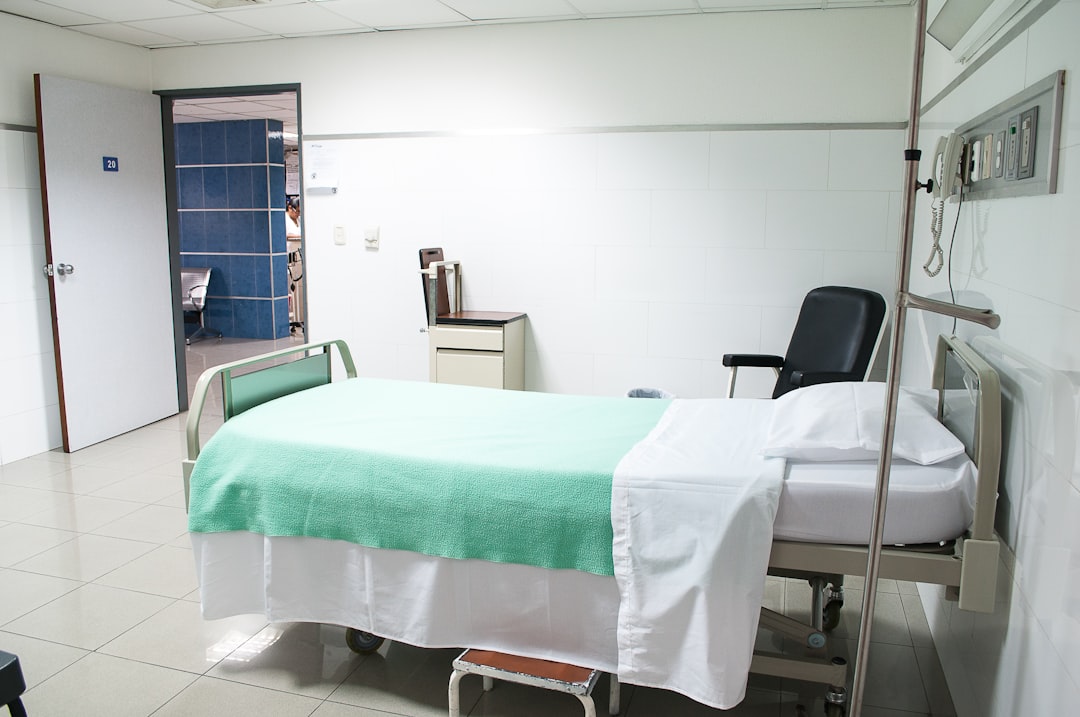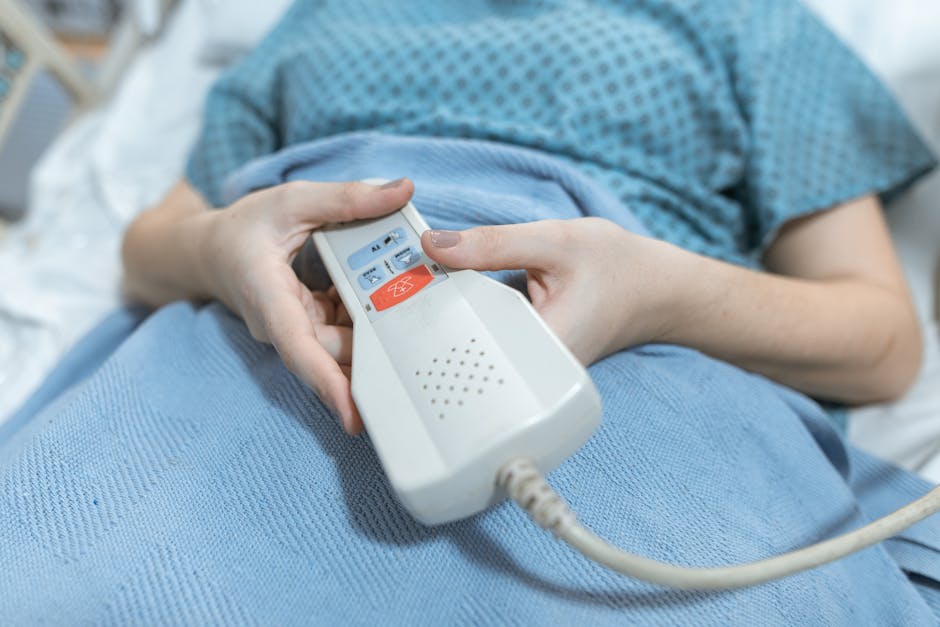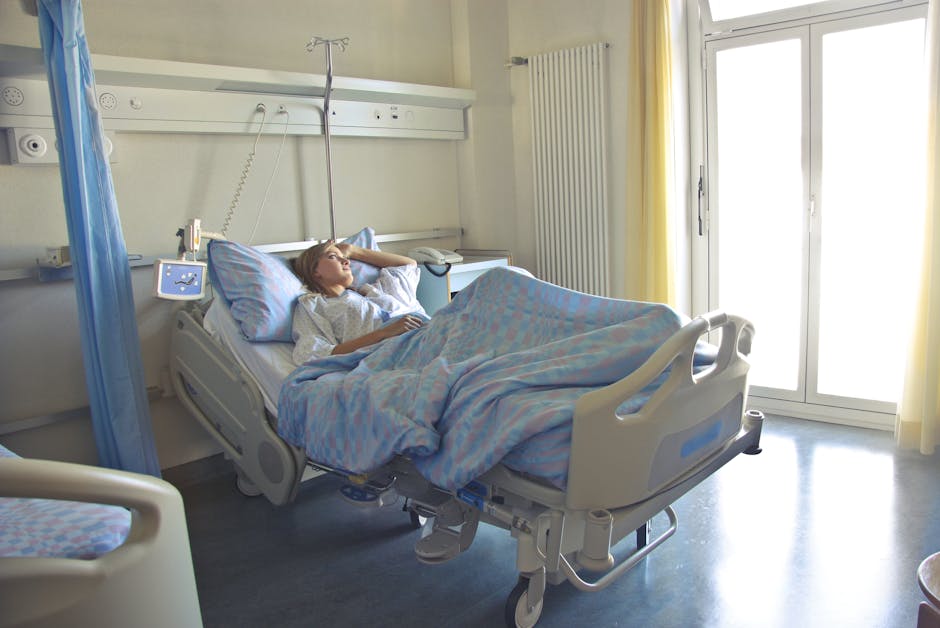423 E. Roosevelt Road, Lombard, IL 60148
630 895 8383

Understanding the hospital bed cost is crucial for anyone considering home medical care. On average, the price ranges from $270 for a basic manual bed to $9,000 for advanced full-electric options.
Here’s a quick breakdown:
Medicare Part B may help cover costs, as hospital beds are considered durable medical equipment (DME). Medicare typically covers 80% of the approved cost when medically necessary.
I’m Sazan Sylejmani, with experience guiding patients and caregivers through complex medical equipment choices, simplifying the process of understanding hospital bed cost. Let’s explore further how different factors affect costs and coverage options.

Choosing the right hospital bed is essential for comfort and recovery, whether at home or in a healthcare facility. Hospital bed cost varies widely depending on the type and features. Let’s explore the main types of hospital beds and their price ranges.
Manual hospital beds are the most affordable option, typically ranging from $500 to $1,000. These beds require physical effort to adjust the head, foot, and overall height using hand cranks. While they are basic models with fewer features, they are suitable for short-term use or when budget constraints are a priority.

Semi-electric beds offer a balance between manual and fully automated controls. They allow electric adjustments for the head and foot sections, but the height is adjusted manually. This mid-range option costs between $800 and $2,000. Semi-electric beds are ideal for those needing more convenience without the higher price tag of fully electric models.

Full-electric beds provide the highest level of comfort and convenience, with all adjustments controlled electronically. These beds are fully automated and often come with advanced features like remote controls and adjustable height, making them suitable for long-term care. Prices for full-electric beds range from $1,200 to $4,000.

While these are the typical price ranges, additional costs may arise from accessories like mattresses, side rails, and IV poles. Quality and brand reputation can also significantly influence the hospital bed cost. Investing in higher-quality equipment often means better comfort and durability, contributing to improved patient outcomes.
In the next section, we’ll dig deeper into the factors that influence hospital bed costs, including brand reputation, additional features, and accessories.
When considering the hospital bed cost, several factors play a crucial role. Among these, brand reputation, quality, and additional features and accessories are significant determinants.
The reputation of a brand often reflects the quality of its products. Renowned brands are known for producing high-quality hospital beds that offer durability and reliability. While these beds may come with a higher price tag, they provide peace of mind through superior craftsmanship and long-lasting performance.
Customer service is another important aspect tied to brand reputation. Companies with a strong reputation often offer excellent customer support, ensuring you receive assistance with any issues or questions regarding your hospital bed. This level of service can be invaluable, especially when dealing with complex medical equipment.
The features and accessories that come with a hospital bed can greatly impact its cost. Here are some common accessories and features that might be included or added:
Mattresses: A specialized mattress can range from basic foam to high-end models designed for pressure relief and comfort. Prices can vary from $300 to $2,000 depending on the type and quality.
Rails: Safety rails are essential for preventing falls and providing support. Depending on their type and functionality, they can cost between $50 and $1,000.
IV Poles: These are crucial for patients requiring intravenous therapy and can be an additional cost depending on their features and adjustability.
Trapeze Apparatus: Helpful for patients needing assistance with mobility, these can be added to improve the functionality of the bed.
Overbed Tables: These tables provide convenience for eating, reading, or other activities while in bed.
When selecting a hospital bed, it’s important to consider these additional features and how they align with the patient’s needs. While they may increase the initial hospital bed cost, they can significantly improve comfort and usability.
In the next section, we’ll explore how Medicare and insurance coverage can help manage these costs, making hospital beds more accessible to those who need them.
Navigating hospital bed cost can be daunting, especially when trying to figure out what insurance will cover. Here, we’ll break down how Medicare and other insurance options can help manage these costs.
Medicare Part B can be a valuable resource when it comes to covering the cost of a hospital bed for home use. Hospital beds are considered durable medical equipment (DME), which means they fall under the coverage of Medicare Part B. However, there are a few things you should know:
20 Percent Copayment: Medicare typically covers 80% of the approved amount for a hospital bed. This leaves you responsible for the remaining 20%, which is the copayment.
Part B Deductible: Before Medicare starts paying, you must meet the Part B deductible. This is an annual amount you pay out-of-pocket before your coverage kicks in.
Enrolled Suppliers: To ensure Medicare covers your hospital bed, your doctor and supplier must be enrolled in Medicare. If they’re not, Medicare won’t pay the claims submitted by them.
For retired veterans enrolled in Medicare, Tricare for Life (TFL) offers additional support. TFL acts as supplemental insurance, helping cover costs not paid by Medicare. Here’s how it works:
Supplemental Insurance: TFL covers the 20% copayment that Medicare doesn’t pay, reducing your out-of-pocket expenses.
Retired Veterans: This coverage is specifically for retired veterans, providing an extra layer of financial protection for those who served.
If you’re considering purchasing a hospital bed, check with your insurance provider about eligibility and reimbursement options. Here’s what you need to know:
Itemized Receipt: Some suppliers, like Monty’s Home Medical, can provide an itemized receipt after purchase. You can use this to apply for reimbursement from your insurance provider.
Insurance Provider: Before buying, contact your insurance provider to confirm what expenses are eligible for reimbursement. This can prevent unexpected costs.
Understanding these aspects of Medicare and insurance coverage can significantly ease the financial burden of purchasing a hospital bed. We’ll dig into additional costs and considerations that might arise during the process.
When purchasing a hospital bed, it’s important to consider the additional costs that might arise beyond the initial purchase price. These can include assembly services, specialized sheets, maintenance, and even potential tax deductions.
Hospital beds are often heavy and complicated to assemble, which can be a challenge for many. Professional assembly services are available to help with this task. These services typically come with an additional fee, but they ensure the bed is assembled correctly and safely. The peace of mind that comes with knowing your bed is set up properly can be well worth the cost.
Hospital beds have non-standard dimensions, which means regular sheets won’t fit properly. Instead, you’ll need specially sized sheets designed for hospital beds. These sheets help ensure comfort and safety, reducing the risk of friction and pressure sores. A bedding guide can assist you in selecting the right sheets, ensuring a snug fit and optimal comfort for the user.
Like any piece of equipment, hospital beds require regular maintenance to keep them in good working order. This can include checking the bed’s mechanics and ensuring that all parts are functioning correctly. These maintenance costs should be factored into your budget.
Additionally, there may be tax benefits to purchasing a hospital bed. The IRS allows for deductions related to durable medical equipment. If you itemize your deductions, you might be able to deduct the cost of the bed and related expenses on your tax return. Always consult with a tax professional to understand how these deductions apply to your specific situation.
Understanding these additional costs and considerations can help you make a more informed decision and ensure that you’re fully prepared for the financial aspects of owning a hospital bed. Next, we’ll address some frequently asked questions about hospital bed costs.
Medicare Part B can cover a portion of the cost for a full electric hospital bed, but certain conditions must be met. The bed must be deemed medically necessary and prescribed by a doctor. Typically, Medicare covers 80% of the approved amount after the Part B deductible is met. The patient is then responsible for the remaining 20% as an out-of-pocket cost. It’s important to ensure that both your doctor and the supplier are enrolled in Medicare, as this affects coverage eligibility.
The cost of a hospital bed per day can vary significantly depending on the type of facility. In non-profit hospitals, the daily cost tends to be lower compared to for-profit hospitals. While precise numbers can fluctuate based on location and specific hospital policies, it’s generally accepted that for-profit institutions charge more due to their business models. Understanding these differences can help in making informed decisions about hospital care and managing expenses effectively.
Hospital beds are costly due to several factors. Brand reputation plays a significant role, with renowned brands often charging more for their high-quality products and superior customer service. The quality of materials and construction also contributes to the price, as beds need to be durable and reliable to ensure optimal care for patients. Additionally, advanced features such as full electric controls, specialized mattresses, and additional accessories further increase the cost. Investing in a high-quality hospital bed can lead to better patient outcomes, making it a crucial consideration despite the higher initial expense.
Choosing a hospital bed for home use is a significant decision that impacts your comfort and health. At Monty’s Home Medical, we understand the importance of making the right choice and are committed to providing personalized service and expert guidance.
Our team in Lombard, IL, is dedicated to helping you find the best solution for your needs. We offer a wide range of home medical equipment, including mobility aids and incontinence products, building on the legacy of Westmont Pharmacy since 1930. Our goal is to improve your quality of life by ensuring you have access to the right equipment and support.
We believe that every individual’s healthcare needs are unique. That’s why we take the time to understand your specific requirements and preferences. Whether you need a manual, semi-electric, or full-electric hospital bed, we guide you through the process, ensuring you make an informed decision. Our expertise extends to helping you steer complex topics like hospital bed cost, insurance coverage, and additional features.
By choosing Monty’s Home Medical, you’re not just purchasing a hospital bed. You’re gaining a partner in your health and well-being. From initial consultation to installation and beyond, our commitment to quality and customer satisfaction ensures a seamless and supportive experience.
For more information and to explore our range of home hospital beds, visit our hospital bed service page. Let us help you improve the comfort and quality of life for you or your loved one.